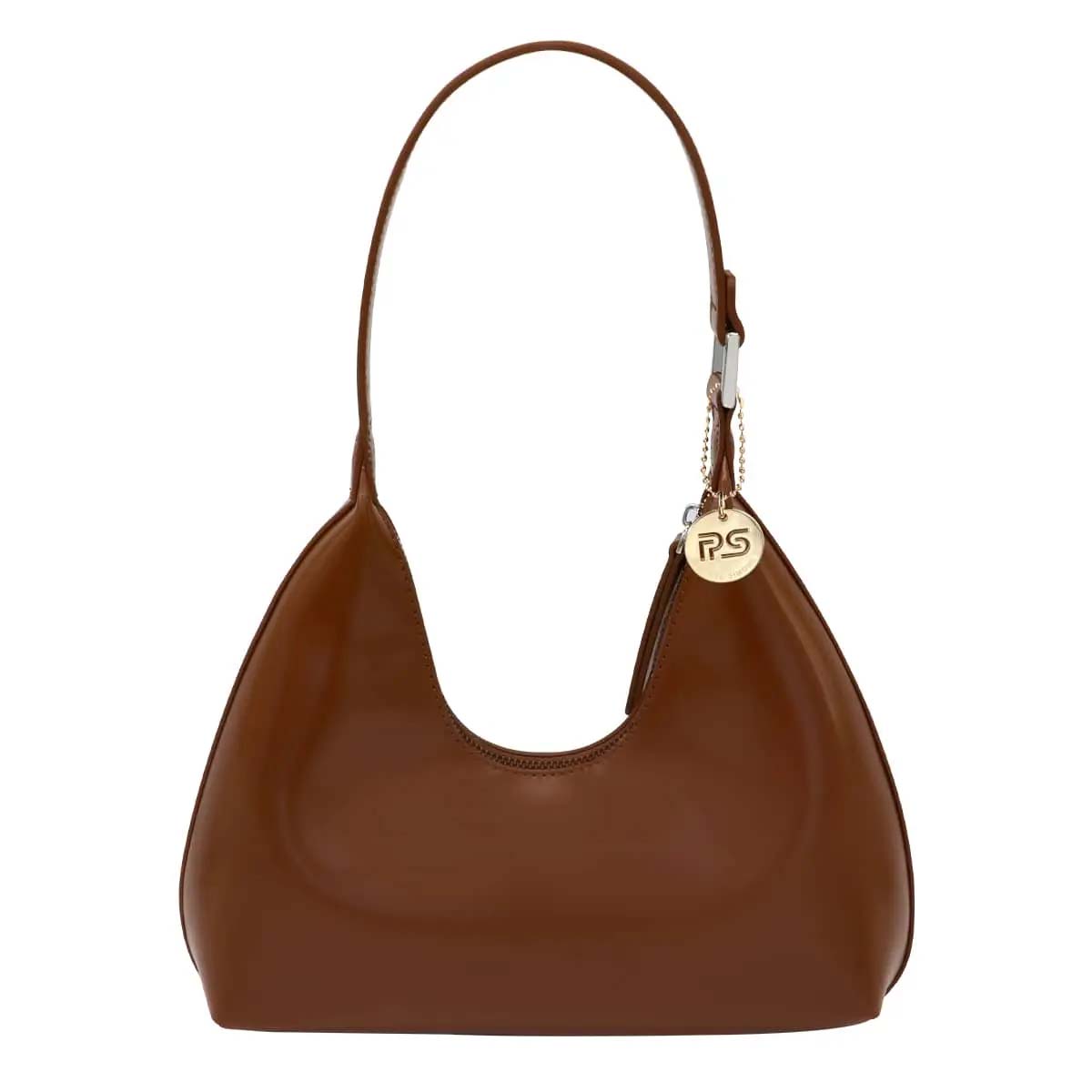HOME TIPS TOTE BAGS 101: DEFINITION, TYPES, SIEZS & MAKE
Tote Bags 101: Definition, Types, Siezs & Make
Written by Erin Sullivan
Definition of Tote Bags
Tote bags are versatile, spacious bags with sturdy handles, designed for carrying a variety of items with ease. Known for their simplicity and functionality, they seamlessly blend practicality with style, making them a timeless accessory for everyday use.
What Does "Tote" Mean?
The word “tote” has roots that trace back to the 17th century, originating from the English word meaning “to carry.” Over time, it evolved from a practical term associated with the action of transporting or lifting items to a concept that embodies convenience and adaptability. Unlike specialized terms tied to particular professions or contexts, “tote” inherently conveys versatility, making it applicable across cultures and lifestyles.
Today, the term reflects the ethos of modern life: simplicity, function, and versatility. Whether it’s carrying groceries, books, or personal items, “tote” captures the idea of being ready for anything—a trait that aligns perfectly with the design and purpose of the tote bag itself. This deeper linguistic and cultural significance is part of why tote bags resonate with such a wide audience, transcending mere practicality to become symbols of adaptability and style.
What is a Tote Bag?

A tote bag is a large, versatile, and open-top bag with sturdy handles, typically long enough to sling over the shoulder. Characterized by its unstructured design, it offers ample storage space, making it ideal for daily use. Unlike specialized bags, tote bags are multipurpose, seamlessly blending style and utility.
What Are Tote Bags Made Of?
Tote bags come in a variety of materials to suit different needs, including:
- Canvas: Known for its durability and eco-friendly nature, canvas tote bags are perfect for everyday errands.
- Leather: Luxurious and elegant, leather tote bags are a favorite for office or formal settings.
- Nylon or Polyester: Lightweight and water-resistant, these materials are popular for gym or travel tote bags.
- Jute or Cotton: Often used for sustainable or reusable tote bags, these are lightweight and eco-conscious choices.
Each material offers unique benefits, allowing tote bags to cater to diverse occasions and lifestyles.
What Are Tote Bags Used For?
Tote bags are incredibly versatile and serve various purposes, including:
- Daily Essentials: A perfect companion for carrying books, groceries, or even gym gear.
- Work Bags: Spacious enough to fit laptops, notebooks, and other office supplies.
- Travel Bags: Ideal as carry-ons or day trip bags due to their roomy interiors.
- Fashion Accessories: With countless styles and materials, tote bags double as chic fashion statements.
Why Are Tote Bags So Popular?
Tote bags have gained immense popularity for several reasons:
- Functionality: Their spacious and unstructured design accommodates a wide range of items.
- Style Versatility: Available in countless colors, patterns, and materials, tote bags suit every outfit and occasion.
- Sustainability: Many tote bags are made from eco-friendly materials, aligning with the growing trend toward sustainability.
- Affordability: From luxury leather designs to budget-friendly cotton options, tote bags offer choices for every budget.
In essence, tote bags strike a perfect balance between utility and style, making them a timeless favorite in the world of bags.
Types of Tote Bags
Tote bags come in a wide variety of designs, materials, and functionalities. To help you better understand the diverse options, here’s a detailed breakdown based on material, design features, and intended use.
Material-Based Categories
- Canvas Tote Bags
- Features:Made from thick, durable cotton fabric, canvas totes are lightweight yet sturdy. They're often washable and come in a variety of colors and prints.
- Best For:Everyday errands, carrying books, or grocery shopping.
- Style Tip:Opt for canvas totes with bold prints to add a touch of personality to your casual outfits.
- Leather Tote Bags
- Features:Known for their sleek and professional appeal, leather totes are typically structured and come in genuine or vegan leather options.
- Best For:Office use, formal meetings, or upscale casual outings.
- Style Tip:Pair a black leather tote with a blazer and trousers for a polished look.
- Nylon Tote Bags
- Features:Lightweight, waterproof, and low-maintenance, nylon totes are designed for practicality. Many include zippers and multiple compartments.
- Best For:Gym sessions, travel, or rainy days.
- Style Tip:Choose a nylon tote with vibrant colors to add energy to your casual wardrobe.
- Woven Tote Bags
- Features:Crafted from straw, rattan, or other natural fibers, woven totes are lightweight and breathable. These bags are popular for their rustic charm.
- Best For:Beach days, picnics, or summer vacations.
- Style Tip:Pair a woven tote with a maxi dress or wide-brimmed hat for an effortless bohemian look.
Design-Based Categories
- Open-Top Tote Bags
- Features:Minimalist in design, these bags usually lack zippers or closures, making them easy to access.
- Best For:Quick trips to the store or casual outings.
- Style Tip:Ideal for layering with a chic scarf tied around one handle for added flair.
- Zippered Tote Bags
- Features:Includes a top zipper to keep belongings secure, combining functionality with style.
- Best For:Commuters or travelers who need extra peace of mind.
- Style Tip:Look for zippered totes in neutral colors for versatility.
- Compartment Tote Bags
- Features:Designed with multiple compartments, these totes help keep items organized.
- Best For:Professionals or parents managing multiple essentials.
- Style Tip:Choose a tote with subtle branding to balance functionality and sophistication.
- Reversible Tote Bags
- Features:Two designs in one! Reversible totes often feature different colors or patterns on each side, offering versatility.
- Best For:Style enthusiasts who love options.
- Style Tip:Flip the bag to match different outfits throughout the day.
Use-Based Categories
- Grocery Tote Bags
- Features:Made from eco-friendly materials like recycled polyester or cotton, grocery totes are durable and reusable.
- Best For:Carrying groceries, reducing plastic waste, or as a backup bag.
- Style Tip:Customize your grocery tote with patches or prints to make it uniquely yours.
- Beach Tote Bags
- Features:Large and often waterproof, beach totes are designed to hold towels, sunscreen, and other beach essentials.
- Best For:Beach vacations, poolside lounging, or casual summer outings.
- Style Tip:Look for bold stripes or tropical prints to embrace the summer spirit.
- Designer Tote Bags
- Features:Luxurious totes from high-end brands, often featuring premium materials, intricate details, and recognizable logos.
- Best For:Special events, making a statement, or elevating everyday outfits.
- Style Tip:Keep your outfit simple and let the designer tote steal the spotlight.
- Travel Tote Bags
- Features:Spacious and durable, these totes often include features like padded straps, multiple compartments, and travel-friendly materials.
- Best For:Weekend getaways or as a carry-on bag.
- Style Tip:Choose a travel tote in a neutral shade to match any outfit.
Summary of Key Tote Bag Types
Type | Best For | Key Features | Style Tip |
Canvas Tote | Daily errands, books, groceries | Durable, eco-friendly, lightweight | Pair with casual jeans and sneakers. |
Leather Tote | Work, formal events | Structured, sleek, luxurious | Match with tailored office wear. |
Nylon Tote | Gym, travel, outdoor activities | Waterproof, lightweight, practical | Opt for bold colors for energy. |
Woven Tote | Beach, summer outings | Natural fibers, rustic, breathable | Pair with flowy summer dresses. |
Grocery Tote | Eco-conscious shopping | Large, reusable, often washable | Customize with patches or pins. |
Beach Tote | Poolside, vacations | Spacious, waterproof, easy to clean | Go for tropical prints or bold hues. |
Designer Tote | Special occasions | High-end, premium materials | Minimal outfits to highlight the bag. |
Travel Tote | Weekend getaways, carry-on | Spacious, multi-compartmental | Neutral tones for versatile use. |
Tote Bag Sizes: Standard Measurements & Practical Uses
Finding the perfect tote bag isn’t just about picking a stylish option; it’s about selecting the right size that matches your lifestyle and needs. From minimalist outings to work commutes or weekend getaways, tote bags come in various sizes, each designed to fulfill a specific purpose.
Let’s dive into the standard measurements, practical uses, and helpful tips for choosing the ideal tote bag size.
1. Small Tote Bags: Compact and Stylish
Dimensions
- Width: 8-12 inches
- Height: 9-11 inches
- Depth: Up to 4 inches
Best For
Small tote bags are your go-to for minimalist outings or occasions when you only need the essentials. Think about a quick coffee run, a casual stroll, or an evening dinner date. These totes are compact yet practical, often designed to carry items like your phone, wallet, keys, and maybe a small notebook.
Practical Example
Heading to a lunch meeting but don’t want the bulk of a large bag? A small tote, especially in a neutral or pastel color, can double as both a functional accessory and a chic addition to your outfit. Many small totes also feature detachable straps, making them versatile for hand-carry or crossbody use.
2. Medium Tote Bags: The Everyday Hero
Dimensions
- Width: 13-16 inches
- Height: 11-13 inches
- Depth: Up to 5 inches
Best For
Medium tote bags strike the perfect balance between portability and storage capacity. They’re ideal for everyday use, whether you’re heading to the office, running errands, or attending casual social events. These bags comfortably fit a small laptop or tablet, along with documents, a water bottle, and a makeup pouch.
Practical Example
Imagine a busy day that starts with a morning meeting, transitions into an afternoon coffee date, and ends with a quick stop at the grocery store. A medium tote can handle all these scenarios with ease, keeping your essentials organized without weighing you down.
3. Large Tote Bags: The Ultimate Carry-All
Dimensions
- Width: 17 inches or more
- Height: 14 inches or more
- Depth: 6-8 inches
Best For
If storage is your top priority, large tote bags are the way to go. Designed for short trips, shopping sprees, or carrying heavier items, these bags can handle laptops, gym clothes, groceries, or even baby supplies with ease. They’re particularly favored by travelers, moms, and anyone who needs a bag that works as hard as they do.
Practical Example
Planning a weekend getaway or a day at the beach? A large tote bag can hold your beach towels, sunscreen, snacks, and even a spare change of clothes. Look for one with sturdy straps and a reinforced base to handle the weight.
How to Pick the Perfect Tote Bag Size
Choosing the right tote bag size depends on several factors:
- Purpose
Define your primary use. Is it for work, where you need to carry a laptop and files? Or for casual outings, where minimal storage suffices?
- For work, opt for medium or large sizes.
- For quick errands, a small tote will do.
- Capacity Needs
Consider what you’ll carry daily. A large tote may be ideal for bulky items, while a medium tote is great for lighter, organized storage.
- Proportions
Ensure the bag complements your body frame. Petite individuals may find oversized totes overwhelming, while taller frames suit larger bags better.
Standard Tote Bag Measurements Guide
To make your choice easier, here’s a quick size chart for reference:
Size | Width (inches) | Height (inches) | Depth (inches) | Best Use |
Small | 8-12 | 9-11 | Up to 4 | Minimalist outings, quick errands, evening accessory |
Medium | 13-16 | 11-13 | Up to 5 | Everyday use, work commutes, casual shopping |
Large | 17 and above | 14 and above | 6-8 | Short trips, grocery runs, carrying gym clothes, baby supplies, or travel |
Understanding the standard tote bag dimensions and their practical uses can transform your bag-buying experience. Whether you need a sleek small tote for evening wear or a large, sturdy one for weekend adventures, there’s a perfect size for everyone.
How to Make a Tote Bag
In a world dominated by fast fashion, making your own tote bag is not just cost-effective but also a way to express your individuality. Whether you need a reusable shopping bag or a stylish everyday tote, creating your own allows you to customize it for your needs.
This part will help you craft a unique tote bag step by step, perfect even for beginners!
Preparations
(1) Material List:
- Fabric:
- Canvas: Durable and great for carrying heavier items.
- Cotton: Lightweight and easy to handle, ideal for daily use.
- PU Leather: Adds a premium and sophisticated look.
- Accessories:
- Needle, thread, scissors, and optionally a sewing machine.
- Ruler, fabric pen.
- Optional add-ons like zippers, buttons, or embellishments.
(2) Tools:
- Sewing machine (optional for hand sewing).
- Fabric scissors for precise cuts.
- Iron to press fabric edges and eliminate creases.
(3) Design Planning:
- Determine usage: shopping, everyday use, or travel.
- Sketch a simple design, including dimensions and extra features like pockets or embellishments.
Step-by-Step Instructions
Step 1: Cutting the Fabric
- Mark dimensions on your fabric with a ruler and fabric pen.
- Example size: Width 35cm, Height 40cm, Bottom 10cm.
- Add a 1cm seam allowance on each side.
- Cut the fabric for the tote body and the handles.
- Handle dimensions: Width 8cm, Length 60cm.

Step 2: Sewing the Body
- Fold the fabric with the wrong side facing out and align the edges.
- Sew along the two side edges with a sewing machine or by hand.
- Create a base:
- Fold the bottom corners into triangles and sew across them to form a flat bottom.

Step 3: Making the Handles
- Fold the handle fabric strips in half lengthwise with the wrong side out.
- Sew along the edge and then turn them right-side out. Use an iron to flatten.
- Attach the handles to the top edges of the tote using a cross-stitch pattern for reinforcement.

Step 4: Decorating and Finishing
- Add zippers, buttons, or clasps for functionality.
- Embellish with embroidery, patches, or prints to personalize your tote.
- Check for loose threads, trim any excess, and ensure all seams are secure.
Practical Tips
(1) Fabric Selection:
- For Everyday Use:Choose lightweight cotton or canvas and consider water-resistant materials for outdoor use.
- For Heavy Loads:Use thick canvas and reinforce the bottom to increase durability.
- For Personal Style:Opt for patterned or textured fabrics to make a statement.
(2) Beginner-Friendly Tips:
- Start with a simple design, like a tote without lining or base reinforcement.
- Prepare materials in advance by pre-cutting and ironing to ensure smooth assembly.
- Practice sewing straight lines on scrap fabric to build confidence before starting.
(3) Fixing Imperfections:
- Cutting Errors:Cover minor asymmetry with decorative patches or embellishments.
- Loose Seams:Re-stitch the area, especially at handle joints, to reinforce the structure.
- Stains:Use fabric-appropriate cleaning solutions, avoiding bleach that can damage colors or textures.
Making your own tote bag is both practical and fun, offering endless opportunities for customization. With just a few simple steps, you can create a functional, stylish bag that reflects your personality.
Whether for personal use, gifts, or even small-scale production, tote bags are versatile projects worth trying. Share your creations and enjoy the satisfaction of handmade craftsmanship!
FAQ
How to Wash a Tote Bag
- Check the Material: Review the fabric type (e.g., cotton, canvas, leather) and any care labels.
- Cleaning Canvas or Cotton Bags:
- Hand wash with mild detergent and lukewarm water. Gently scrub stains using a soft brush.
- Avoid bleach as it weakens fibers. Air-dry to maintain shape.
- For Leather or Coated Bags: Wipe with a damp cloth and a mild soap solution. Use leather conditioner afterward to prevent cracks.
- Machine Wash: Use only for sturdy materials like canvas. Wash on a gentle cycle with cold water. Place the bag in a laundry bag to avoid damage.
How Much Is a Tote Bag?
- Budget Range: Basic cotton or canvas tote bags cost around $5–$20.
- Mid-Range Options: Designer totes or bags made from premium materials like PU leather range from $50–$150.
- High-End Luxury: Branded leather totes from high-end designers can start at $500 and go beyond $2000.
- Customization Costs: Adding embroidery, prints, or logos can increase the price by $10–$50 per bag.
How to Sew a Tote Bag
- Prepare Materials: Choose durable fabric like canvas. Cut according to your desired size (e.g., 35cm x 40cm for a standard bag).
- Steps:
- Sew the edges with the wrong side out, leaving the top open.
- Fold and sew the bottom corners into triangles to create a flat base.
- Attach handles by stitching them securely to the top edge.
- Tips: Reinforce stress points (like handle joints) with extra stitching. Experiment with adding inner pockets for more functionality.
How to Crochet a Tote Bag
- Choose Materials: Use sturdy yarn (e.g., cotton) and an appropriate hook size (e.g., 4.5–5.5mm).
- Basic Pattern:
- Base: Start with a chain of desired length and work in single or double crochet, adding stitches at corners for a rounded base.
- Body: Continue crocheting in the round or rows until the desired height is reached.
- Handles: Crochet straps by attaching yarn at the top edges and chaining a sturdy length before reattaching.
- Finishing: Block the bag to enhance shape and durability. Add lining if needed for extra strength.
How to Add a Zipper to a Tote Bag
- Prepare the Zipper: Choose a zipper slightly longer than the bag’s opening.
- Attach the Zipper:
- Pin the zipper to the bag's opening (right sides together) and sew one side at a time.
- Use a zipper foot on your sewing machine for precision.
- Finishing Touches:
- Topstitch along the zipper edges for a cleaner look.
- Test the zipper for smooth operation and trim any excess fabric or threads.
- Tips: Use a hidden zipper style to maintain the bag's aesthetic.

.webp)














